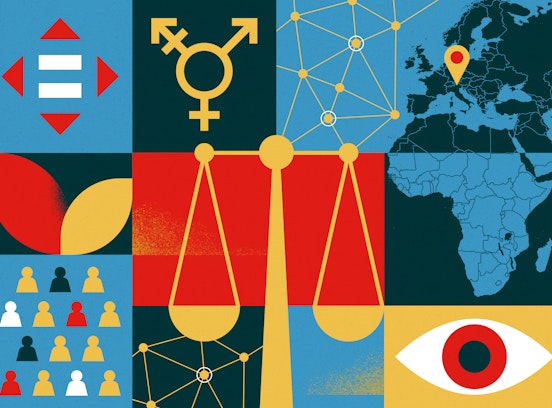Center for Advanced Studies - News & Events - Football Politics in Central Europe and Eastern Europe
Football Politics in Central Europe and Eastern Europe
A Study on the Geopolitical Area’s Tribal, Imaginal, and Contextual Politics
A new publication edited by Roland Benedikter and Dariusz Wojtaszyn elucidates the socio-political and symbolic-cultural aspects of football as a “different form of politics” in Central-Eastern and Eastern Europe.
The book "Football Politics in Central Europe and Eastern Europe. A Study on the Geopolitical Area’s Tribal, Imaginal, and Contextual Politics", developed in close cooperation between the Center for Advanced Studies and the Willy Brandt Centre for European Studies at the University of Wroclaw, takes into account both contemporary and historical aspects and incorporates findings from various disciplines and deals, in exemplary ways, with the area’s “Identity Politics”, which have often been neglected. Based on football politics, aspects of the specific political mechanisms of the area are presented and explained. Alongside Roland Benedikter, also Mirjam Gruber, political scientist at the Center for Advanced Studies, contributed significantly to the new publication, which is part of the Center's comprehensive, long-term focus on Central and Eastern Europe, including events and other projects.
Long before the return of the now proverbial “Political Tribes” by the means of populisms and neo-authoritarianisms in societies around the world, football in Central-Eastern and Eastern Europe worked as a subconscious vehicle of group instincts and political moods that represented, mirrored, informed and influenced political behavior and governmental decisions both in the post-WWII communist and then, after 1991, the neo-capitalist societies located east of the former iron curtain. Football has always been used by both governments and their opponents, including the dissident civil society, to further coherence and to symbolically represent specific readings of power relations, system ideologies and history. Football in Central and Eastern Europe was always able to attract and include large parts of the population, inducing them to symbolically express protest against the government or to sustain the “politics from above”. Such use is now becoming international.
The global role of football as the world’s most followed sport is destined to increase, among other factors because of its outstanding media success and growing market shares in both the developed Western and in the emerging non-Western markets. Thus its imaginal and contextual political value and influence is also growing. Drawing on both contemporary and historical aspects and including insights from different disciplines, this book elucidates the socio-political and symbolic-cultural aspects of football as a “different form of politics” in Central-Eastern and Eastern Europe.
The publication "Football Politics in Central Europe and Eastern Europe. A Study on the Geopolitical Area’s Tribal, Imaginal, and Contextual Politics" has been published by Lexington Books and can be purchased HERE both as hardcover and e-book.
Edited by Roland Benedikter and Dariusz Wojtaszyn.
Foreword by Lukas Zahner.
Afterword by Krzysztof Ruchniewicz.
Contributions by Roland Benedikter, Mirjam Gruber, Bogdan Popa, Tomasz Sahaj and Dariusz Wojtaszyn.
Critical Acclaim for this book
This is a very important book, dealing with a subject that has been often marginalized in public discourse. The highly diversified development of football in the countries of Central and Eastern Europe – from socialist amateurism during the communist era to professionalism, introduced after the political changes in the 1990s – requires thorough research, the direction of which is determined by this path-breaking publication”.
Jan Tomaszewski, professional football player, goalkeeper of Poland’s national team, third place at the 1974 World Cup, where he was named Best Goalkeeper, politician and journalist.
“I warmly recommend this book. The editors are outstanding experts on the interface between politics and sport. All contributions are based on detailed empirical research and convincing theoretical approaches. They deal with current dimensions at the overlapping point between football and politics as related to structures, developments, and processes of identification and re-nationalization in societies of Central-Eastern and Eastern Europe, including Poland, Ukraine, Russia, Hungary and Rumenia. This book will inspire broader interest among scholars, students and the civil society for the interface between football, politics, history and society”.
Michael Krüger, professor of Physical Education, Cultural Studies and History of Sports at the Institute of Sport and Exercise Sciences of the University of Münster (Germany).
“Football Politics in Central-Eastern and Eastern Europe” offers path-breaking case studies of the development of modern football (soccer) in a crucial geopolitical area of Europe which was neglected for many years. This book is an important contribution for a better understanding of the “soft power” represented by football at the crossroads between globalization, neo-nationalism(s) and commodification, but also for understanding Central-Eastern and Eastern Europe in their deeper political, civil and civic dimensions”.
Rudolf Müllner, professor of sport science at the Department of Sport Science of the University of Vienna (Austria).










